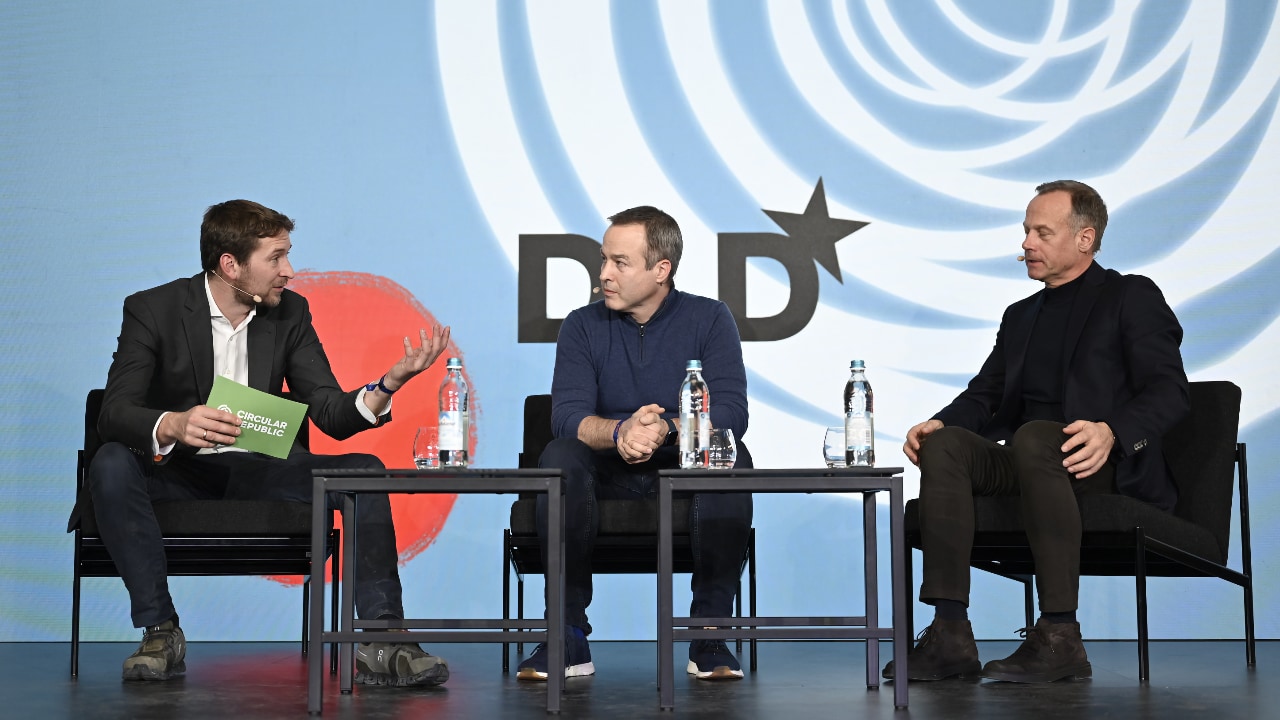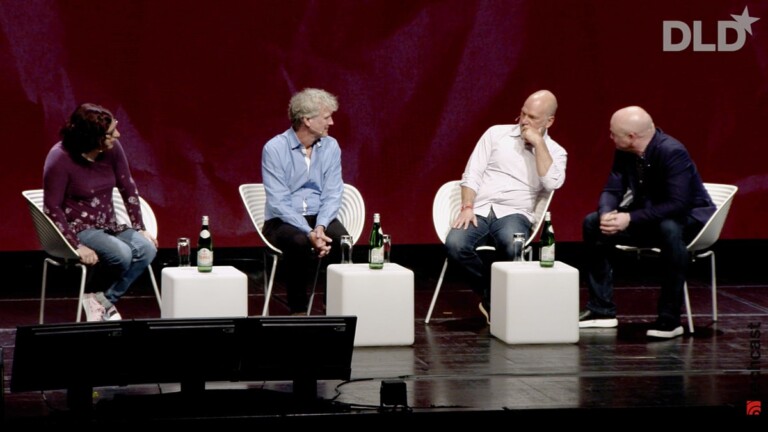Innovative technologies like AI, digital twins and product passports can enable circular economies for products like batteries, as you’ll hear in this DLD24 panel discussion with Matthias Ballweg (Circular Republic), Stefan Wagner (SAP Lab Munich) and Christian Adler (Twinu).
Data availability and new data management processes are key to making a circular economy profitable, Stefan Wagner points out. “That is the driver at the end, that we create the impact”, he says.
In addition, he notes, sustainability as a topic has advanced to the corporate leadership level. “More and more leaders get now access to data which enable them to make sustainable decisions.”
Christian Adler explains how digital twins and AI can be used to create digital product passports, which can enable new business models and strategies.
One example is enabling AI systems to understand product life cycles, Adler says. “They will have the potential that AI can access and work with the data from your car battery, but also from other products you have.” This, in turn, will facilitate make recycling and repurposing products much easier, Adler predicts.





